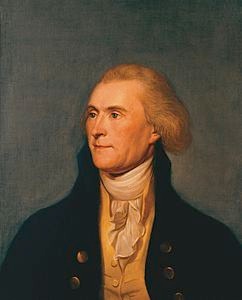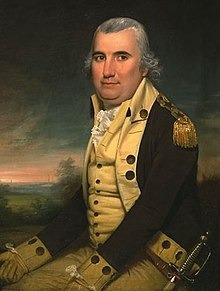Early Electoral Chaos and Party Loyalty, Part III
- PJ Springer

- Apr 24, 2020
- 3 min read
The first Jefferson administration (1801-1805) was largely dominated by foreign affairs—despite
Jefferson’s best efforts to keep the United States as distant from European powers as possible. Jefferson entered office determined to shrink the size (and debt) of the federal government. In particular, he dismantled many of the federal bureaucracies that had been established by the Federalists under Alexander Hamilton’s leadership. He also targeted the military as an unnecessary expense for a young nation geographically separated from any existential threats. But, Jefferson also pushed to establish a national academy to train military officers, leading to the creation of the U.S. Military Academy at West Point in 1802. He believed that if officers were educated in modern military techniques, with a special emphasis upon engineering, they would be loyal to the nation, rather than to the commander-in-chief who appointed them to their ranks. Jefferson also took the opportunity to purchase the Louisiana Territory from France—a move that was almost certainly not permitted under the laws of the era, but was also an opportunity too good to pass up. This purchase doubled the size of the United States, removed a potential rival power from the continent, and created enormous opportunities for American citizens. For virtually his entire first administration, Jefferson was a wartime president, having requested the nation’s first declaration of war in 1801. That declaration, against North African power Tripoli, authorized a four-year naval conflict with the Barbary state that eventually included a successful negotiation to halt attacks upon American shipping.

Jefferson’s first administration was clearly successful, and had substantial popular support throughout most of the United States. Thus, it was certain that he would be nominated by the Democratic-Republicans to serve a second term in office. The Federalists turned to Charles Pinckney, who had run for the vice presidency in a losing effort in 1796. Jefferson decided to drop Vice President Aaron Burr from the ticket in his reelection bid, as Burr had become an unpredictable political liability (and as a result was essentially cut out of almost all government activity.) Burr sensed that he was going to be removed from the vice presidency, and hence chose to run for the governorship of New York in 1804. When the Democratic-Republican nominating caucus met, it selected George Clinton as Jefferson’s running mate. Ironically, Clinton was the sitting governor of New York at the time.

The outcome of the Election of 1804 was never in any particular doubt. Jefferson was a popular president who had defended national honor against the Barbary states, doubled the size of the nation at a relatively minimal cost, and presided over a booming economy. The Federalists knew that they had to run a candidate if they wished to remain a viable party, but they were so despondent at their prospects that they did not even hold a formal nominating caucus. As expected, Jefferson won re-election in a landslide, capturing 15 of 17 states and over 90 percent of the electoral vote (as well as over 70 percent of the popular votes cast).

Aaron Burr’s electoral outcome was not as successful as his erstwhile political partner. His campaign for the governor’s office in New York was beset on all sides by criticism and scandal. In particular, his replacement, George Clinton, undertook serious efforts to undercut Burr’s chances of winning the election, launching a massive smear campaign despite the fact that he was looking to depart the office (and was of the same party as Burr). The other important source of opposition to Burr’s campaign came from his long-time rival, former Treasury Secretary Alexander Hamilton. By 1804, the two men had worked against one another for nearly a decade, and had developed a deep-seated loathing between them. Hamilton certainly opposed Burr’s election on policy grounds, but it was backed by a personal animosity that lent vigor to his efforts. When the votes were counted in April 1804, Burr lost the election to little-known Morgan Lewis, who captured nearly 60 percent of the popular vote despite having little name-recognition. Burr blamed Alexander Hamilton for the loss—and vowed to obtain revenge for Hamilton’s meddling. After a series of letters back and forth with Hamilton, Burr challenged his rival to a duel, a matter of honor in which personal combat might permanently settle their dispute.









Comments